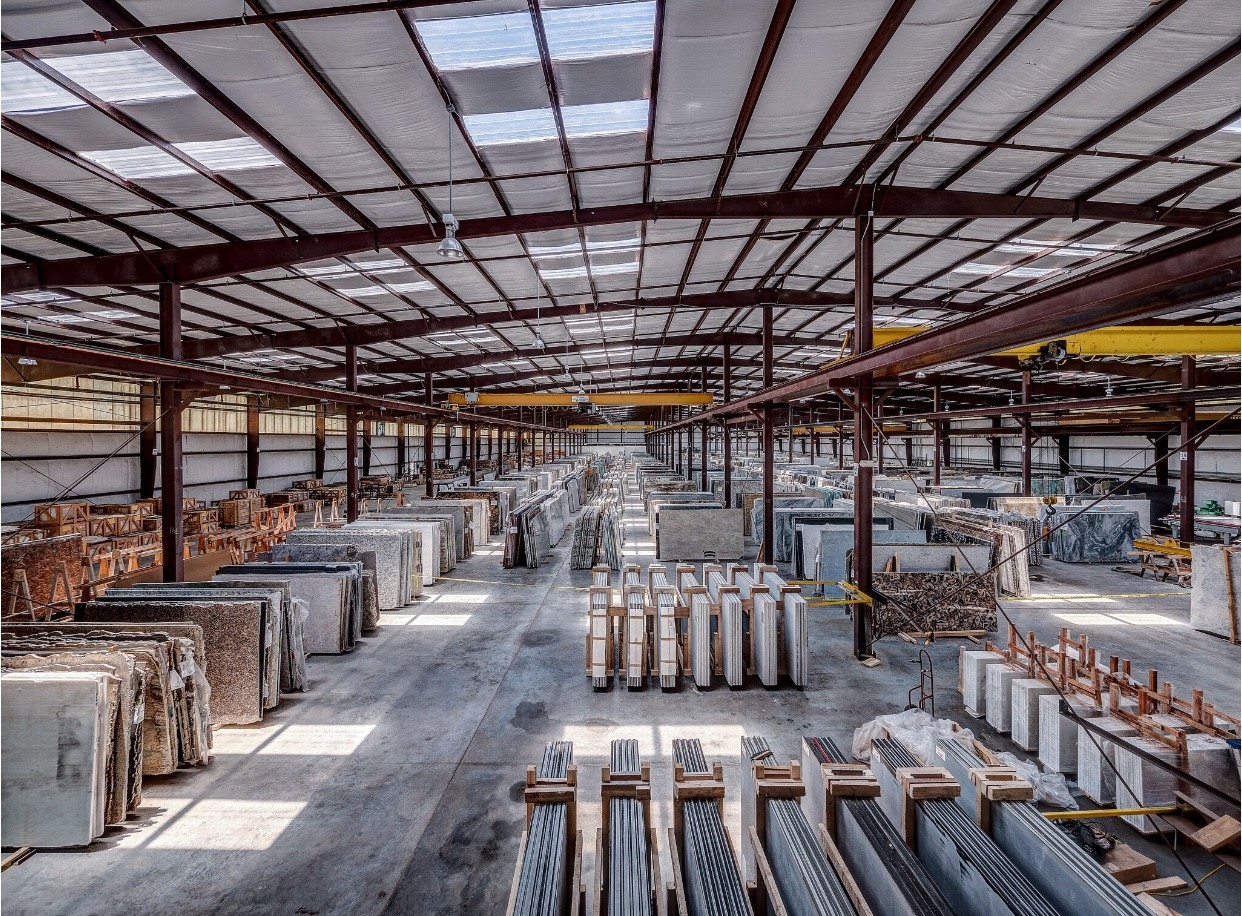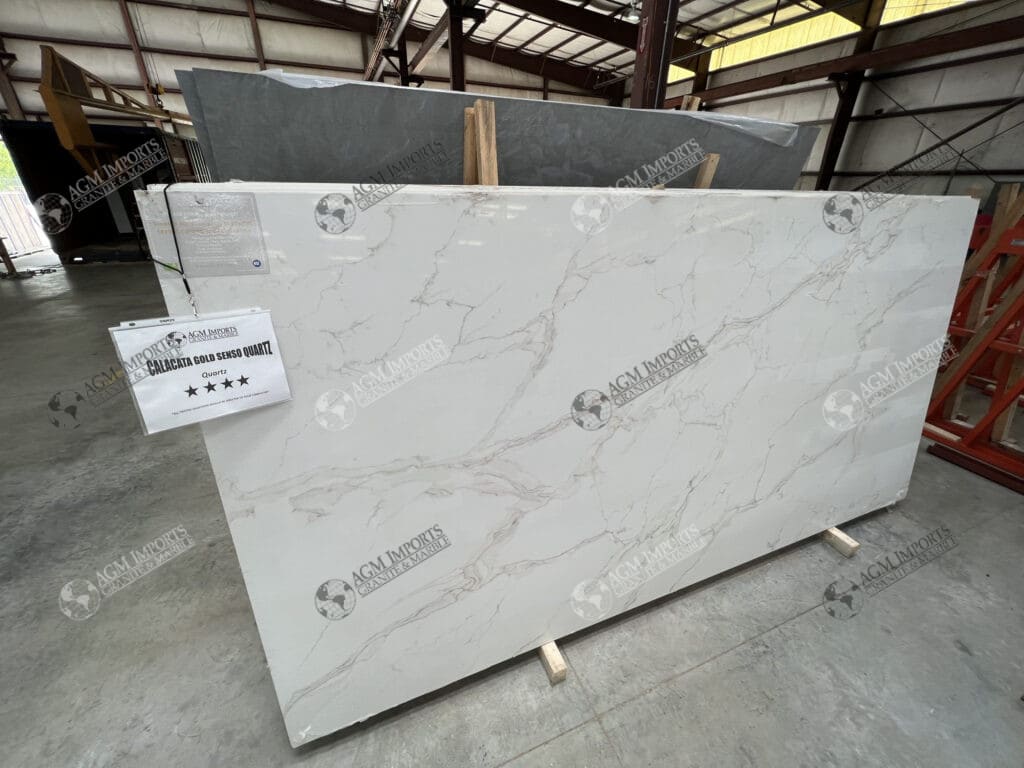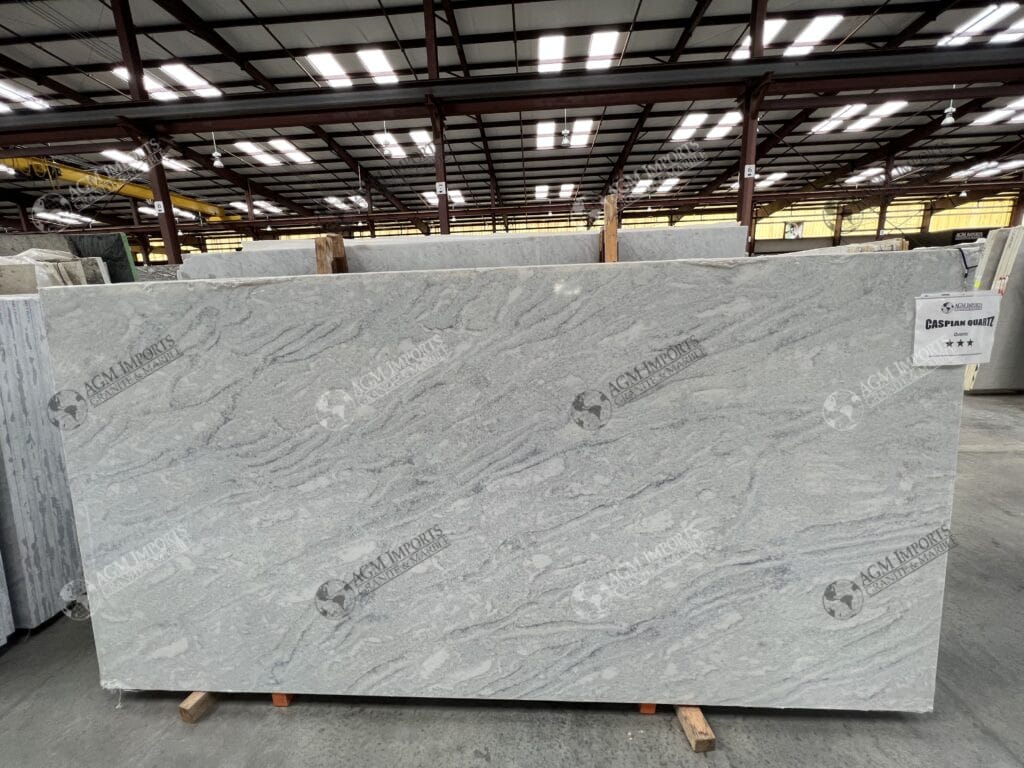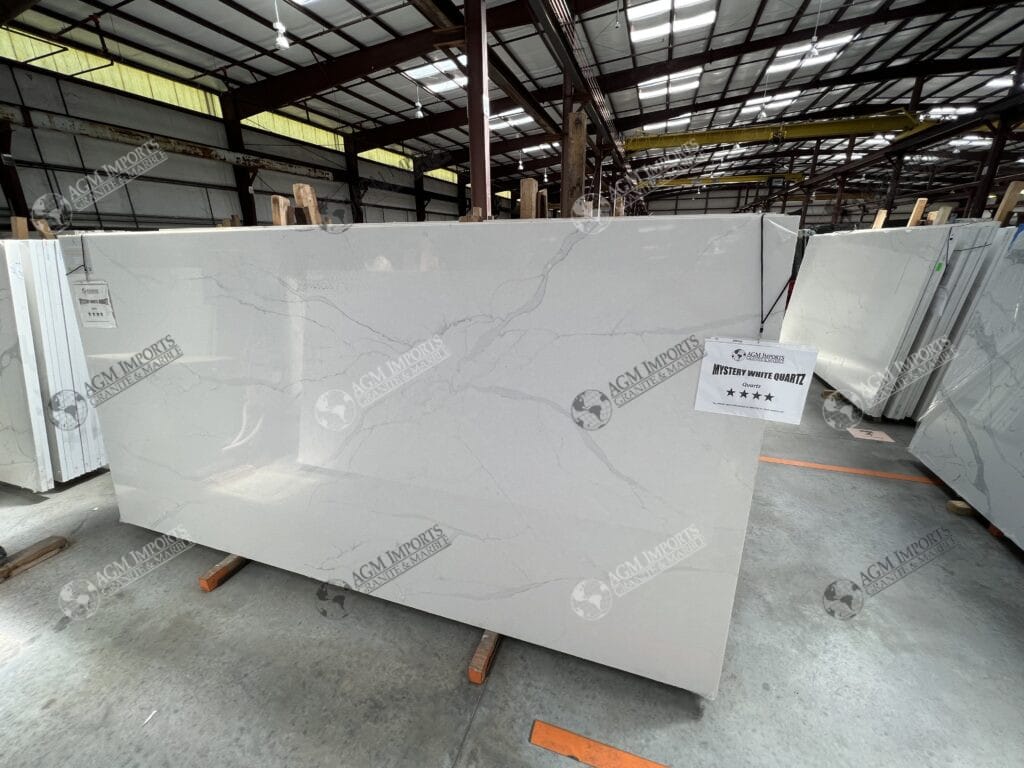
Quartz Surfaces: Insight Before You Buy
The production of quartz surfaces involves combining natural quartz crystals with resins, pigments, and other additives, which are then molded and cured under high pressure and temperature. This process ensures a durable and non-porous surface, perfect for modern homes. In recent years, quartz surfaces have gained traction due to their exceptional properties and captivating aesthetics, largely attributed to the innovative manufacturing process behind them.
Benefits of Quartz Surfaces
Quartz surfaces offer a range of benefits that make them a popular choice for use in a variety of applications. These benefits include their durability, low maintenance requirements, aesthetic appeal, hygiene, and sustainability.
- Durability: Quartz is an incredibly robust material, consisting of natural quartz minerals and high-quality polymer resins. This composition makes it resistant to scratches, chips, and stains, helping the surfaces maintain their pristine appearance for an extended period.
- Aesthetic Appeal: Quartz surfaces offer an elegant and modern look, with a wide range of colors and patterns that can complement various design styles. The consistency in patterns and textures makes it easier to achieve a uniform appearance in any space.
- Non-porous and Hygenic: Unlike some natural stones, quartz surfaces are non-porous which means it does not require sealing and is resistant to staining. The non-porous nature of quartz prevents bacteria and mold from growing, making it a hygienic choice for the home or workspace.



Maintenance of Quartz Surfaces
Quartz surfaces are renowned for their durability and ease of maintenance, making them a popular choice for kitchens and bathrooms. However, to keep them in their best condition, there are a few things you should keep in mind.
- Daily cleaning: Simply use a damp cloth or sponge to wipe down the surface and remove any debris. For a thorough clean, mild soap and water will suffice. Rinse and dry the surface to prevent water spots.
- Avoid harsh chemicals: Quartz surfaces can be damaged by acidic or abrasive cleaning agents. To preserve the material’s integrity, use mild, pH-neutral cleaners.
- Use protective measures: While quartz is highly durable, it’s still a good idea to use cutting boards, trivets, and coasters to protect the surface from potential damage.
Comparing Quartz Surfaces to Other Countertop Materials
Quartz surfaces are often compared to other popular countertop materials, such as granite, marble, and quartzite. Here are a few key differences:
- Granite: Both granite and quartz surfaces offer excellent durability and resistance to damage. However, quartz surfaces are non-porous and more consistent in appearance, which can be an advantage for some homeowners when compared to granite’s natural variations.
- Marble: Marble is known for its elegance but is more prone to staining and scratching than quartz. When compared to marble, quartz surfaces provide a similar aesthetic with increased durability and lower maintenance requirements.
- Quartzite: Quartzite is a natural stone with unique patterns and a wide variety of colors. It requires periodic sealing, while quartz surfaces are non-porous and require less maintenance. However, quartzite’s natural beauty may be more appealing to those seeking a one-of-a-kind look when compared to quartz’s more uniform appearance.
Quartz surfaces are an excellent option for homeowners seeking a durable, attractive, and low-maintenance material for their countertops and more. Before making your decision, it’s essential to consider factors like maintenance requirements, aesthetics, fabricator, and overall cost. With proper care and attention, quartz surfaces can enhance the appearance of your space while providing lasting functionality.

